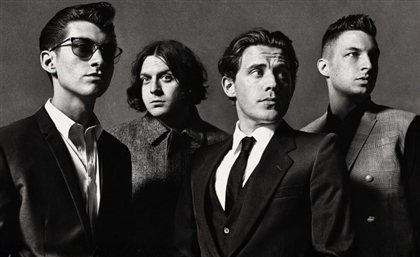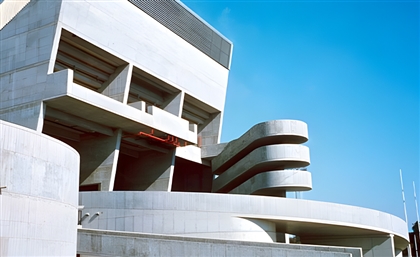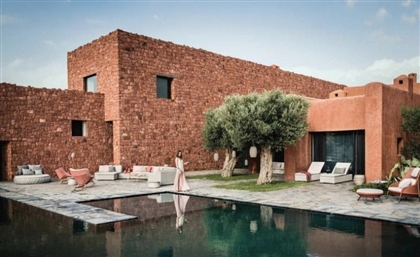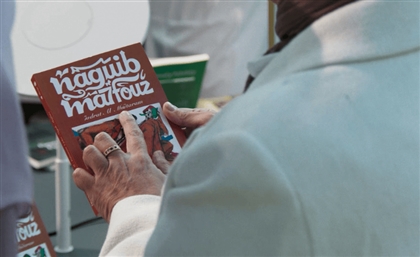Neurosurgeon Dr. Ahmed Abdeen’s Testimony From Gaza
After losing his brother as a child, Dr. Ahmed Abdeen vowed to become a neurosurgeon. He tells us how war, memory, and faith shaped his journey from Gaza’s hospitals to a promise he still carries.
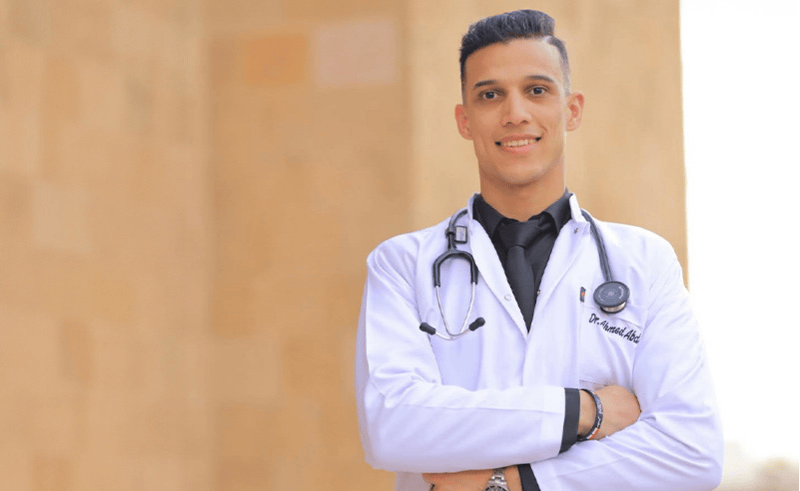
In times of great injustice under occupation, doctors become anchors, witnesses, and bearers of unbearable truths, far beyond the confines of conventional medicine. In Gaza, one of those witnesses is Dr. Ahmad Abdeen, a young Palestinian doctor who lived through the unimaginable: treating the wounded under bombardment, operating with scarce resources, and holding on to a vow made over a decade ago.
Before Israel launched its genocidal invasion, Dr. Abdeen had planned to complete his education as a neurosurgeon, and establish a specialised neurosurgery hospital in his homeland. As the bombs fell and demolished his house, he was forced to leave to Egypt, where he continues to work in the hopes of finishing this critical mission. He speaks with the urgency of someone who has seen what the world prefers to look away from. His story is one of survival, purpose, of continuing, studying, and believing in the value of every life pulled from beneath the rubble.
I sat with Dr. Abdeen because stories like his rarely get told fully, and even more rarely by the people who lived them. In his voice lives Gaza, its pain, its strength and its unwavering will to live.
His journey into medicine didn’t start in lecture halls. It began on the asphalt, in a moment of unforgettable loss. He was 14 when he saw his brother Hashem bleeding and dying in front of his eyes after a car accident in Gaza. He stood helpless as Hashem needed emergency brain surgery, but there were no specialists, no resources, no chance. Hashem spent 15 days in the ICU before passing away.
“On the day of his burial, I made a vow before God and before Hashem: that I would become a doctor, specialising in neurosurgery, to be the help he never had and to save lives that might otherwise vanish like his,” Dr. Abdeen told me.
In 2016, he took the first step toward fulfilling that vow when he was accepted into Ain Shams University’s medical school. It would be the first time he went to Egypt to pursue his medical education. His joy was mixed with anxiety; how would he afford the tuition and living costs? With a will that didn’t break, he studied tirelessly. From the first year, he ranked top amongst international students and second amongst Egyptians.
Then came unexpected relief: a generous woman from Kuwait sponsored his tuition for six years. She became, after God, the reason he was able to continue and achieve his dream. He graduated with honours, ranking first amongst international students.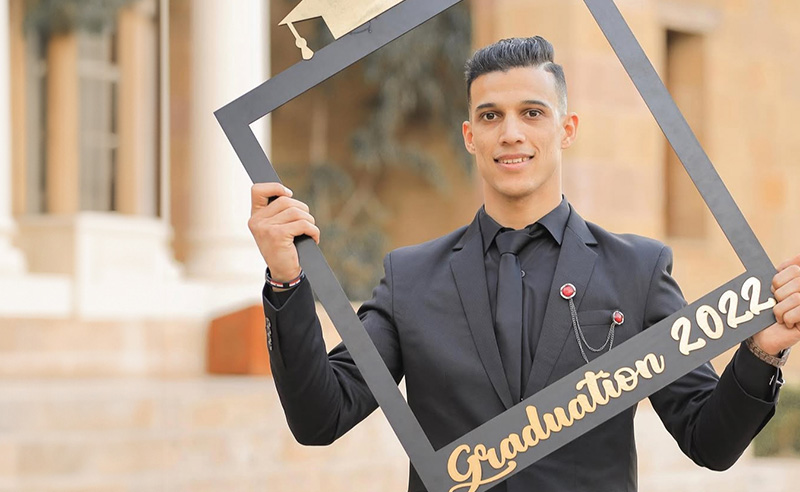
“My academic journey wasn’t easy,” he said. “I was a stranger in a foreign land, yearning for my country and my family. But I carried a mission larger than exile or deprivation, a mission named loyalty to Hashem, mercy for people, and hope for Gaza.”
He had been able to go back to Gaza and fulfil some of these ambitions. “We sang with our laughter and wove priceless memories from the small details of life,” he said, recalling the years he spent with his family. “Our hearts knew peace, our homes held safety, and our dreams had space to imagine the future.”
When Israel began its assault on Gaza, his path in neurosurgery felt like a calling, clear, urgent, and undeniable. He felt the genocide was a divine test. Would he stand by his people, as he had vowed? He knew every minute in the hospital could save a life, maybe a child like Hashem.
When he went to the European Gaza Hospital on his first day as a volunteer, he felt like he had walked into the heart of a living wound. Nothing in the world could have prepared him for what he saw.
“I entered hoping to help, but I found myself in the middle of an unmatched catastrophe,” he said. “I saw souls screaming, not with voices, but with eyes that had cried every tear they had. I saw children, women, and elderly people torn apart, scattered, alive in dead bodies, and dead with dreams that never came true.”
It was like a nightmare. He saw dismembered human remains stacked in hospital corners, as if they were inventory - as if they weren't somebody's son or mother or sister. He saw bodies wrapped in white cloth, waiting for space in the morgue.
In the operating room, he saw hundreds of injured people crying - not asking to live, just begging for the pain to stop. He saw a 24-year-old woman, half her body missing, bleeding from a severe head wound. They saved her after hours of surgery. When she woke up, she wept, asking, “Where is my man?” He couldn’t answer. Hours later, the rest of her body arrived in her sister’s shroud, who had been martyred the same night.
He saw a boy who lived through a massacre, the only survivor from his entire family. The boy looked at them, as if asking: Why me? What now?
“What I witnessed in six months, I doubt any surgeon in the world sees in a lifetime,” Dr. Abdeen said. “Every corner of that hospital screamed. Every scream is now etched in my mind. They chase me when I’m awake. They bring me to tears in my sleep. What I saw was a different kind of struggle: the struggle to stay human in the face of extermination. And that’s why I’ll keep going. I will carry this message as long as I live.”
“The cases I dealt with at the European Gaza Hospital went far beyond anything I studied or trained for,” he continued. “Every wound told a story, every person was a walking reminder of everything we were up against.”
Dr. Abdeen treated shredded limbs, complete cervical spine fractures, open wounds left untreated because of the siege and lack of basic medical supplies. Often, they worked under bombardment, receiving mostly child victims with terror in their eyes and bodies torn apart, with hospitals being raided by occupation forces who not only killed and arrested the wounded, but also targeted the doctors themselves.
“This reality was nothing like any textbook, nothing like the training offered in safe hospitals,” Dr. Abdeen said. “Practicing medicine in Gaza was about resilience, and a deep, human courage in the face of daily death.”
At first, Dr. Abdeen seemed eager to talk about the medical side, the technical stuff, the impossible conditions. But when I asked about the emotional toll, he fell into silence for a moment.
“During my time at the European Gaza Hospital, there was no space for collapse, not even time to think about emotions,” he told me. “Sometimes we worked three days straight without seeing our own displaced families, who were surviving in tents. I only saw them for an hour or two every few days.”
But the true physical impact of this burden did not hit him until he left Gaza. When he had once again arrived in Egypt, the symptoms started to show: intense guilt, loss of appetite, chronic insomnia, nightmares, and involuntary crying. He felt like he had abandoned them, even though he’d left to serve them better.
“I sought out psychologists in Egypt, and then in the US, trying to make sense of the anxiety that clung to me,” he said, running his hand through his hair. “But the truth is, nothing calmed me, because the war didn’t stop. Death still chased my people. My family remained under siege.”
I was surprised that he was being so open about therapy. But Dr. Abdeen didn't seem to care about keeping up appearances any more.
“It was only then that I realised: the only way to survive what I had lived through was to continue. To channel my pain into my studies. To turn suffering into hope. To make every step I took toward specialisation a step closer to returning, to one day become a doctor who could save those we couldn’t save then.”
His hope in God and his certainty that He is with him every step of the way is the only thing that stopped him from falling apart.
“Being a doctor there was the greatest honour of my life,” Dr Abdeen said, and it was then that I saw him smile for the first time. “Because it brought together humanity and dignity.”
He never felt a conflict between being a doctor and being Palestinian. In Gaza, you don’t choose between your roles, you live them all at once. He was treating the wounded while being displaced like them, searching for his own family in the tents, and then going back to save whoever remained beneath the rubble.
“It stood as proof of a people whose strength endures, even when the world turns away and silence surrounds them,” he said. “In Gaza, the doctor isn’t separate from the cause; he becomes a part of it. His practice of medicine is a continuation of life, in the face of every attempt to erase it.”
The experience deepened the way he views medicine. It turned it into a calling from God. It amplified his sense of duty toward his people and carved into him the belief that medicine is not just knowledge or technique, but a sacred covenant between him and God, and the proof of the promise he made to Hashem.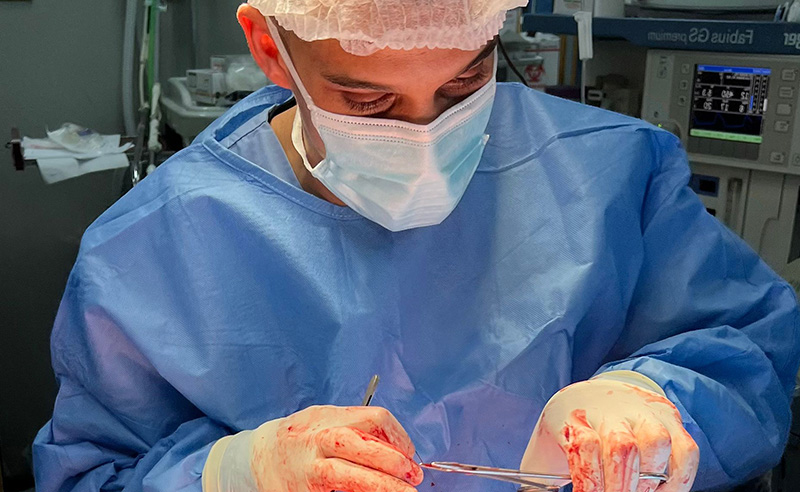
“This experience made me even more determined to continue, to return one day as a doctor who carries hope into the rubble, and light into the darkness.”
When I asked him about his message to the world, Dr. Abdeen leaned forward. “What’s unfolding in Gaza stands as one of the greatest ethical tests of our time, far beyond a humanitarian crisis. To every Arab or Muslim doctor outside Gaza, I say: there will come a day when you will stand before God and be asked why you didn’t use your knowledge to save your brothers and sisters, while they were being slaughtered in full view of the world, with medicine blockaded and medical staff exhausted. Do not be complicit in the silence. Every minute without action is a life lost.”
To students, he would tell them that their excellence is their greatest weapon. Don’t underestimate the power of a word, a picture, a prayer, a stance. The path of knowledge is the path to victory, but do not remain neutral in an age of massacres. “To every free young person, Arab or not, Muslim or not, I say: Gaza stands as a mirror to the world’s conscience, a place where the weight of humanity is deeply felt. If you don’t act now, know that the injustice will eventually reach you. Silence doesn’t stop it, it brings it closer.”
Despite all the pain and massacres he’s witnessed, as a doctor and as a displaced person, there was still a light in his heart that never faded. Because his hope does not lie in this world, but in his deep faith and unwavering certainty that God does not abandon His people, that every wound has an end, every night has a dawn, and every hardship is followed by ease.
I decided to ask him what he would tell himself before entering Gaza. Dr. Abdeen closed his eyes in thought, and said, “Ahmed… be proud. You are about to step into the most sacred land and the greatest test. You will witness pain, massacre, betrayal, but also the most powerful patience and strongest will humanity has ever known. I would say: If I weren’t from Gaza, I would have wished to be from Gaza, so I could live this dignity, carry this sacred burden, and be among my people, who teach the world the meaning of resilience. Enter Gaza with your heart, your soul, your knowledge, and your vow. You are going to carry a trust that only those chosen by God can bear, a light in the age of darkness.”
- Previous Article MENA Startup Funding Falls 82% in June to $52 Million
- Next Article Inside Egypt’s Seven UNESCO World Heritage Sites








